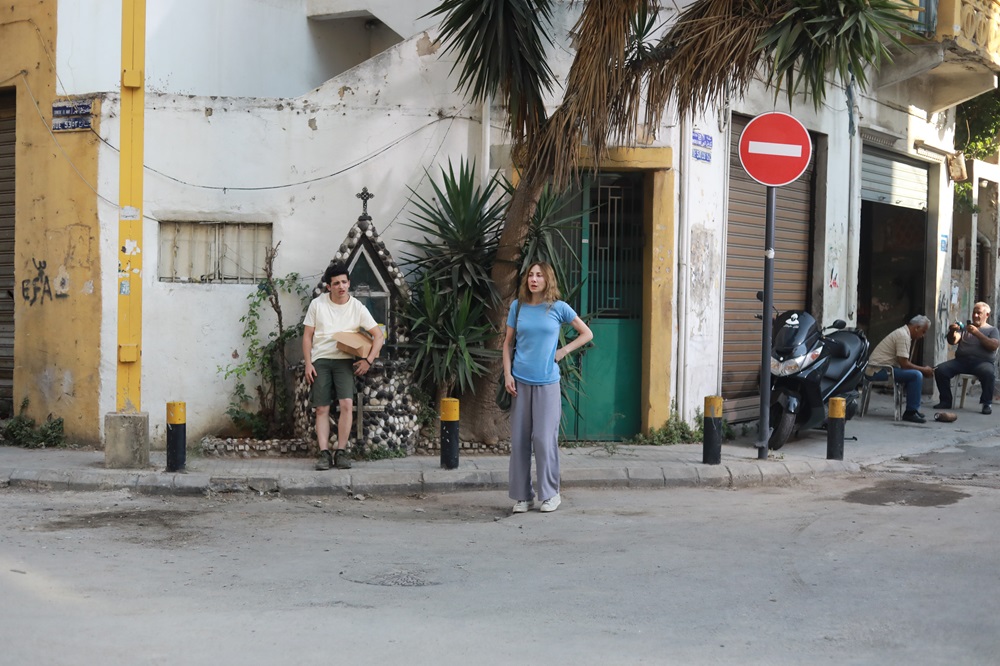Several moments throughout Mira Shaib’s debut feature, “Arzé,” I found myself seeing some similarities that “Arzé” has with some of my favorite films, such as Haifaa al-Mansour’s “Wadjda” and Vittorio De Sica’s “Bicycle Thieves.” Sometimes the nods are too blatant, that one can assume that Shaib, working on a screenplay by Sam Faisal Shaib and Louay Khraish, is gunning for a contemporary remake with this film. And that’s fair.
Nonetheless, “Arzé’s” heart (as well as the overbearing narrative subplots) make this film one of one. In a way, I appreciated how Shaib keyed in on Arzé’s resilience and determination to find and retrieve the stolen scooter in the midst of contemporary Beirut that underscores Lebanon’s complex social fabric.
[More Tribeca Coverage: ‘The Shallow Tale of a Writer Who Decided to Write about a Serial Killer’: Darkly Quirky Premise Wasted on Cursory Execution]

‘Arzé’: Taking Inspiration from Great ‘Bicycle’ Movies
“Arzé” tells the story of its titular character (Diamand Abou Abboud), a struggling single mother who supports her family by making homemade pies delivered on foot by her son Kinan (Bilal Al Hamwi). As the only breadwinner in the household, Arzé keeps telling her older sister Layla (Betty Taoutel), to no avail, for the latter to part with her jewelry so that Arzé could buy a scooter they could use for more deliveries. Layla, for her part, doesn’t leave the house due to her agoraphobia, pines for the return of her own son who has long gone missing, and does not help with the expenses in the house.
In a desperate attempt to secure a downpayment for a delivery scooter, Arzé resorts to stealing Layla’s bracelet and pawning it. Shortly after, however, the scooter is stolen, leaving her potentially in debt and without the only means to better support her family. Together with her son, Arzé tries to blend in with each neighborhood they visit looking for the stolen motorbike. She gets creative just to find the scooter, even going so far as trying on different disguises (donning a hijab or wearing a cross) and accents (Sunni, Shia) for other people to give their plight a listen.
The film becomes a labyrinthine journey of navigating the bustling, multiethnic, and sectarian Beirut. Rife with symbolism — the scooter serves not only as a means of transportation to better serve Arzé’s clientele, but also a hope for a better future for the family — ”Arzé” explores socioeconomic realities facing everyday people, let alone women.
A Tribute to Conscientious and Responsible — Albeit Imperfect — Parenting
As mentioned at the onset, the film’s similarities with the classic 1948 Italian film might be its most glaring weakness. At certain points in the film it feels like the filmmakers simply lifted a few sequences from “Bicycle Thieves” and just transposed them to fit contemporary Lebanon.
Even so, “Arzé” works the strongest when it plays with its ace: a tribute to well-intentioned, but imperfect parenting. The film thankfully keeps its focus on the importance of familial bonds, something deeply ingrained in Arabic culture. There’s a universality to its approach in dealing with the humanity of its characters, including the lengths they would go to protect and provide for their loved ones.
So to go full circle, whether it’s a father and son in “Bicycle Thieves,” a daughter and her mother in “Wadjda,” or Arzé and Kinan in this film; these relationships anchor the narratives in a good film about family bonds. And for that, Shaib deserves much credit.
Ultimately, “Arzé” plays as an ode to parents, especially mothers, who will stop at nothing to provide a better life for their children. The film never indicated that its central character is a perfect mother; far from it, in fact, with all the lying and stealing. Upon closer look, however, Mira Shaib makes the audience understand the reasoning behind each flawed decision, making Arzé a multidimensional character that makes her more relatable, frustrating, endearing, and more human.

